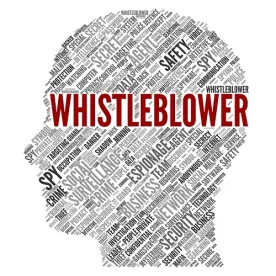May 7, 2021. Two physicians blew the whistle on a neurosurgeon and the two medical device companies that he owned. It is alleged the neurosurgeon performed medically unnecessary surgeries on his patients, and received kickbacks from his two companies for using their medical devices. As a result, the whistleblowers were awarded 20 percent of the government’s $4.4 million recovery under the False Claims Act. These same whistleblowers received earlier rewards for separate False Claims Act settlements involving the same neurosurgeon. One of those rewards was $3.4 million dollars and the other reward amount has not been made public yet.
Defendant Dr. Wilson Asfora and his two companies set out to profit handsomely from the kickback scheme. The process allegedly worked like this: The neurosurgeon performed spine surgeries on patients and in doing so, he used medical devices in his spine surgeries, which he received from his medical device company. Dr. Asfora was paid kickbacks from his companies to use the medical devices. This, in turn, incentivized him to perform more surgeries, including medically unnecessary surgeries in violation of the Anti-Kickback Statute. The neurosurgeon also submitted false claims to federal healthcare programs such as the Medicare and Medicaid program for performing the medically unnecessary procedures. Not only were the claims to the government tainted by the kickbacks but his medical judgment was also compromised by the inducement of payments for performing more surgeries.
The neurosurgeon also allegedly received direct payments or kickbacks from other device companies with which he had agreements. Further, in exchange for using implantable devices used to deliver medication to patients, one company financially helped the Defendant host lavish parties at a restaurant he owned.
The government recovered not only $4.4 million from the neurosurgeon and his two medical device distributorships, but they also dinged his two companies another $100,000 for failing to report to the Centers for Medicare and Medicaid Services his ownership interest in the medical device companies, in violation of the Open Payments Program rules established under the Affordable Care Act.
Importantly, the surgeon and his medical device companies were also barred from receiving Medicare and Medicaid, and other federal health program dollars for six years, a significant penalty.
This case originated from a lawsuit filed by colleagues of the defendant neurosurgeon under the qui tam, or whistleblower, provisions of the False Claims Act. Whistleblower lawsuits allow private parties, known as “relators,” to bring suit on behalf of the government and to share in any recovery. Whistleblowers are protected against retaliation under the whistleblower provisions of the False Claims Act.




 />i
/>i

